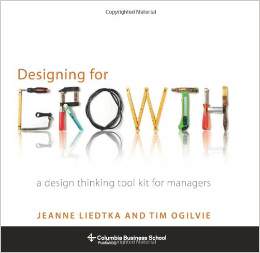Six Myths That Limit Your Startup’s Potential
All true entrepreneurs operate off a set of tenets that are built into their psyche or drilled into them through training and by mentors. These are represented by sayings like “You never get anywhere unless you take a chance” and “Passion and persistence are the keys to success,” Unfortunately, there are still other old, reliable tenets that don’t work anymore.
In a recent book by Jeanne Liedtka and Tim Ogilvie from the Columbia Business School, “Designing for Growth,” the authors encourage managers to think more like designers. I assert that designers have a lot in common with entrepreneurs since both must innovate and start a deep understanding of what their customer really wants (“customer-centered”).
In most other respects, design thinking is the opposite of business thinking. For example, businesses must deal with reality as fixed and quantifiable, whereas design deals with subjective experience and a social constructs. Entrepreneurs need to bridge both these worlds, and the authors outline key business management myths that usually limit startup thinking:
- Myth: Think big. There are always pressures to be sure an opportunity is big enough, but most really big solutions began small and built momentum. To seize really new opportunities, it is better to start small and find a deep, underlying human need to connect with. A better maxim for entrepreneurs is: Focus on meeting genuine human needs.
- Myth: If the idea is good, then the money will follow. The truth about ideas is that we don’t know if they are good; only customers know that. Entrepreneurs often express surprise at funding challenges, confident that their good idea would attract money on its own merits. In that light, a better maxim for entrepreneurs is: Build the right team and customer need, and funding will follow.
- Myth: Measure twice, cut once. This one works fine in an operations setting, but when it comes to creating the as-yet-unseen future of a startup, there isn’t much to measure. Spending time trying to measure the immeasurable offers temporary comfort but does little to reduce risk. A better maxim for entrepreneurs is: Place small bets fast.
- Myth: Be bold and decisive. In the past, business cultures have been dominated by competition metaphors (sports and war being the most popular). Organic growth, by contrast, requires a lot of nurturing, intuition, and a tolerance for uncertainty. Placing bold bets falls well short of the new entrepreneurial maxim: Explore multiple options.
- Myth: Don’t ask a question you don’t know the answer to. This one is borrowed from trial lawyers, and it traveled into business because it always seems less risky to look smart. Unfortunately, new opportunities do not yield easily to leading questions and preconceived solutions. A better maxim for entrepreneurs is: Start in the unknown.
- Myth: Sell your solution. If you don’t believe in it, no one will. When you are trying to create the future, it is difficult to know when you have it right. The key is to be absolutely certain you have focused on a worthy problem. You’ll iterate your way to a workable solution in due time. Follow two maxims here: Choose a worthwhile customer problem. Let others validate.
There are many other design-thinking principles that entrepreneurs need to heed, such as the fact that products and services are bought by human beings, not target markets segmented into demographic categories. Great designs, as well as great products, grab customers at an emotional level first, then at the economic level.
Exemplified by Apple, and the success of their elegant products, design-thinking is proving to be more and more the competitive edge for entrepreneurs. This is not to say that sound business principles should be ignored in your next startup. The challenge for every entrepreneur is to find that right balance between the myths and reality of business, and the power and inspiration of an innovative design.

